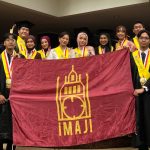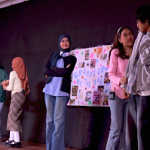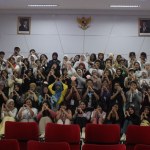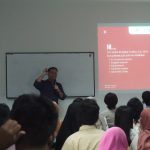Arsip:
2022
It was amidst the chaos of community service when a friend of mine suddenly texted me, “Let’s join Studi Independen!” It did not take long for me to say yes.
The UI/UX Independent Study Program at the Startup Campus was a valuable learning opportunity for me. Through the program, I gained a comprehensive understanding of user experience design, including how to create digital products that […].
On Saturday, November 26th, 2022, the English Studies Programme of UGM held an International Students’ Seminar on Children’s Issues. This event remained the last seminar held on behalf of the English Department students who joined […].
A repost from an Obituary to Prof Stephanus Djawanai by Achmad Munjid, PhD Our FIB UGM team had just finished presenting their study findings at the Jayakarta Military Command Headquarters when they received the unfortunate […].
November 24, 2022, Universitas Gadjah Mada has graduated many students from various faculties, including 129 students from the Faculty of Cultural Sciences, of whom 8 are students from English Studies Programme.
On November 8 and 9, 2022, the English Studies Association Indonesia (ESAI) held their annual congress at Universitas Islam Sumatera Utara, which was attended by department heads and lecturers of English studies programmes from various […].
On Tuesday, November 8th, 2022, students of the English Studies Programme UGM who enrolled in “Kampus Merdeka” program held its first seminar titled “International Students’ Seminar on Gender Equality” as one of the three-part events.
On Saturday, September 30, 2022, the Community Service by English Studies Programme at Muhammadiyah Highschool in Bumiayu was carried out. On September 26, 2022, an online conference was held through Zoom prior to the main […].
Are you keenly interested in discussing various topics about children? If so, let’s tune in to our International Students’ Seminar on Children’s Issues with our incredible speakers: – Aulia Muchtarom (English Literature UGM 2020) – […].
We are inviting you to join our International Students’ Seminar on Gender Equality to discuss various issues regarding gender all around the world with our excellent speakers: – Colby Fortin (Oberlin Shanshi Fellow) – Fatihah […].






